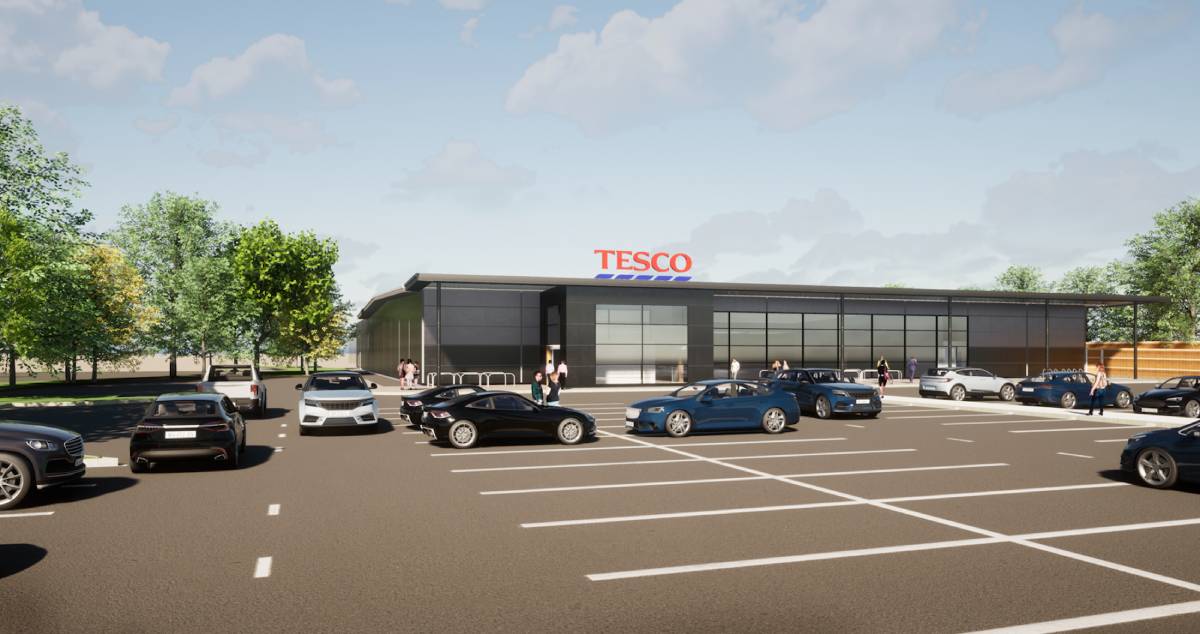There are no “transport-related reasons” to turn down a new Tesco on Skipton Road in Harrogate, according to the developers.
The supermarket giant has lodged proposals to Harrogate Borough Council for a new store, five years after pulling out of a similar development.
It would be built on the former gasworks at New Park and would include a 38,795 square feet store and a petrol filling station.
Tesco has harboured ambitions for a new store in the town for almost 20 years. The retailer previously had plans approved in 2009, but pulled out after opposition from local traders.
Although many people have welcomed the prospect of a new supermarket in the north of Harrogate, some are concerned about the impact of extra traffic on what is already a busy area, plus access to the site.
Tesco has commissioned London-based consultants Markides Associates to produce a range of reports, including a transport assessment, to support its planning application.
The assessment says “extensive pre-application discussions have taken place with North Yorkshire County Council” about the application and says “the safety of the local road network will not be compromised”.
New roundabout
For access to the store, a new roundabout would be created on Skipton Road.
The assessment also pointed out that the development would align with North Yorkshire County Council’s scheme to widen Old Beck Bridge, which is to the east of the site.
According to the report, Tesco’s new store would “result in a decrease in the number of trips” to the site compared with its previous proposal, which was for a larger store.
The document says that the store would attract a total of 908 fewer car journeys on a weekday peak time and 522 on a weekend compared with its previous application.
Read more:
- Tesco Skipton Road supermarket ‘could put us out of business’
- Harrogate cycle group accuses Tesco of greenwash
- Tesco to revive controversial Skipton Road supermarket plans
Under its original plans, which included a larger store, 1,303 journeys would be made during the week and 1,032 on a weekend.
The report said that the current plan would be “significantly lower” than the previous Tesco proposal.
It added:
“This transport assessment has demonstrated that the development proposals will result in a decrease in the number of trips generated by the site compared to the extant permission for the A1 Tesco superstore.”
Online shopping affects traffic
The report also claims that there is likely to be a decline in the number of trips to the store because of a “step change” in customers using online shopping.
It says the number of car journeys to supermarkets have reduced over the last 10 years, which has coincided with lower car parking demand.
Using national data on trips to food stores, Tesco says in its report there has been a “51% reduction for Friday evenings and 24% across Saturdays” on journeys to supermarkets. It said this shows a “clear reduction in vehicle trips generated by supermarkets”.
It claimed that the covid pandemic has also contributed to online demand at its own stores.
As a result, Tesco said it expects to see the trend continue into the future.
The report said:
“It is impossible to predict the long-term effects of covid-19 on people’s supermarket shopping choices.
“However, Tesco have experienced a step-change in the demand for online food shopping over the last eighteen months and it is anticipated that this growth is likely to continue into the future, which may result in even lower traffic generation than estimated.”
Car parking
Tesco has proposed that 181 car parking spaces, nine parent and toddler spaces, six electric vehicle charging points and 24 cycle spaces are created.
Twelve blue badge parking spaces would also be provided.
The developer has said in its assessment that the car parking proposed would be appropriate as the maximum number of spaces occupied it expects at any one time is 110 on a weekday and 166 on a weekend.
Markides Associates concluded in its report that it believes there is no reason to reject the proposal on transport grounds.
It said:
“Markides Associates are of the view that there are no transport-related reasons why the development proposals should not be supported.”






